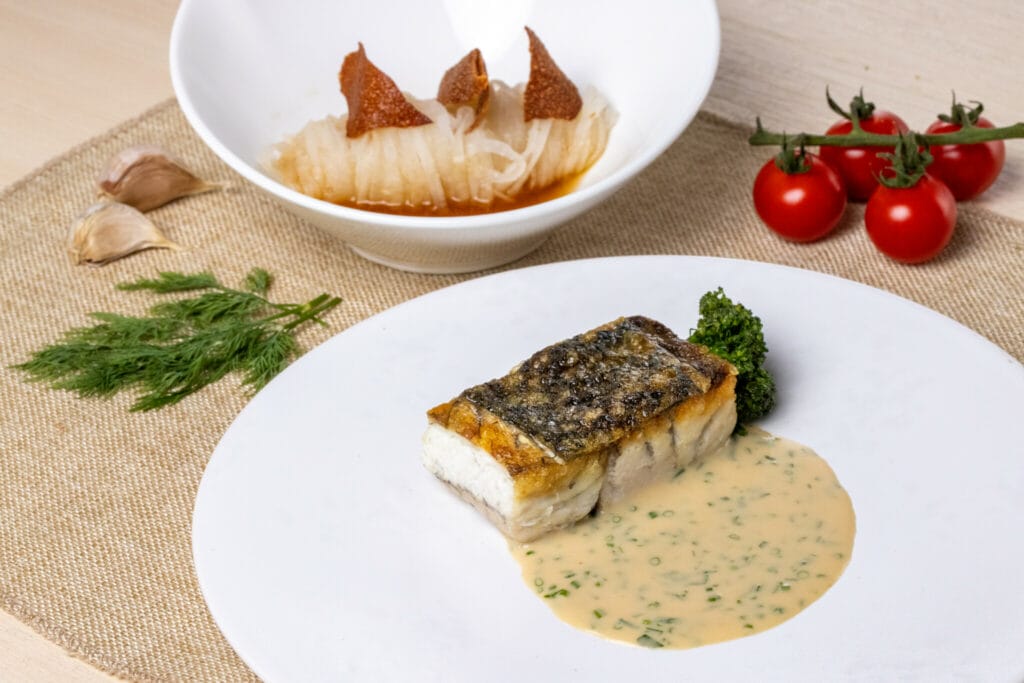It’s no longer surprising to find that many across the planet have developed an interest in protecting the environment. And perhaps for this reason and more, the majority of consumers out there are willing to pay more for sustainable goods and services provided by environmentally responsible individuals and corporations alike!
Now, restaurants of all sizes have the chance to make a difference by adopting sustainable business practices. It’s often easier for independent and more boutique brand names to put forth sustainability efforts that have an immediate impact. Suppose the message is loud and clear: The more sustainable you are in your day-to-day practices, the more attractive your eatery becomes to new age guests who value greatly such practices and are growing in number!
That’s why one of the region’s most celebrated food festivals has keenly featured the theme of sustainability in its just-concluded annual programme! Between August 27 to September 12, the Singapore Food Festival (SFF), which incidentally also celebrated its 28th birthday this year, saw restaurateurs acting on sustainability trends and promote the results of their efforts.
But as sustainability is so broadly defined when it comes to the culinary scene, there are perhaps lots of ways for eateries of all sizes to incorporate some sustainable practices into their daily routines.

Chef Drew Nocente of Salted & Hung
Drew Nocente, the chef and owner of Salted & Hung – the contemporary Australian eatery on Singapore’s Purvis Street that’s also known for its zero food waste leanings – has this to say about things: “The message of sustainability in restaurants needs to be discussed more, same for reducing food waste in our industry.”

Courtesy of Salted & Hung
Nocente feels that food waste in Singapore is at a huge level, not just from the F&B industry but also from the households. “There needs to be more awareness and action taken by eateries. Restaurants, chefs and the industry leaders should be the drivers to the raise the awareness and get more people to talk about it and practice it.”
Meanwhile, Chef Lthena Lye of Swan Lake Avenue’s hugely popular all-day casual café Slake, has this observation to share: “I personally feel that using sustainable or recyclable food packaging is also of high importance. Having done quite a few take outs myself, I do notice that some restaurants have moved away from using plastics and on to environmentally-friendly bio-degradable packaging. It is definitely heartening to see consumers bringing their own Tupperware to restaurants, requesting to have their food packed in them!”

Chef Lthena Lye of Slake
But perhaps Michelin-starred chef Jeremy Gillon of Restaurant JAG on Duxton Road is the one with the most balanced opinion on the matter?
“Knowing the primary source of every ingredient we use in our kitchen is our definition of sustainability,” offers Gillon. “This is our fundamental motto and culinary direction. We make a point to find out as much as possible about every farmer, fisherman, producer and learn about their farming and harvesting techniques. Of course, we try to source from independent farms as much as possible!”

Michelin-starred chef Jeremy Gillon of Restaurant JAG
Gillon remembers that when Restaurant JAG first opened, they relied on produce from countries like Japan and France, with up to 95% of key ingredients being sourced from artisans in those countries.
“Now, just three years later, this has changed to about 60% reliance on produce from that far away. These days, we have been able to source exceptional produce from places like Cameron Highlands. The goal for us and what sustainability means to us is to reduce our carbon footprint aggressively and source exceptional produce from as close to home as possible,” reveals Gillon.
Meanwhile, growing up on a farm himself, Chef Nocente personally understood from a young age how much effort it takes to produce ingredients “That’s why we never wasted anything, ‘beautiful looking’ fruits or vegetables was never a thing and it was always about the taste,” he recalls proudly.
“So, it has come a full circle for me, bringing back my childhood memories, to dishing out cuisine based on minimal wastage at my own restaurant. It pushes us to think out of the box. I have learnt how much extra flavour you can add to a dish if you look at ingredients in a different light!”
Nocente believes that the spectrum of sustainability practice is broad and deep. “It starts from the source of produce to the diner’s experience, and there are so many aspects we can work on. To me, the key is to start by taking small steps and work on the easiest changes that can be made. Implement it and do not cave in, it might be a little harder at the beginning but when it becomes the normal process no one will question it.”
Echoing in agreement, Chef Lye is filled with hope for the future as she feels that the younger generation, with knowledge provided by the internet and more opportunity to travel, would have a better grasp on this subject. “There have been several public awareness campaigns such as the previously held Sustainable Seafood Festival by the World Wildlife Fund (WWF) which highlighted efforts to certify sustainably-farmed or caught seafood and efforts to curb the rampant mislabelling of seafood in the industry.”
“As chefs and restaurateurs are gearing up for a more sustainable future, I believe so too are consumers, who are becoming more aware and prepared to make choices with their wallets,” continues Lye.
Over the past decade, the call to adopt sustainable restaurant practices has continued to grow. In fact, in some places like Singapore, this has become an integral part of the restaurants’ vision and contribution to their community. Now, as clearly showcased by such iconic culinary events like the Singapore Food Festival, restaurants are definitely making a greater effort to be transparent about where their ingredients are being sourced from.
Yet, the transformation of the culinary business model to incorporate sustainable practices has not and will not be an easy one. But the great hope is that forward-thinking restaurant operators will continue leading the way and demonstrate that it is possible and highly beneficial to adopt a more sustainable way to put food on table.
Delve deeper into this subject, and other inspiring food stories now on the Singapore Food Festival Facebook page at: www.facebook.com/SingaporeFoodFestival2021



